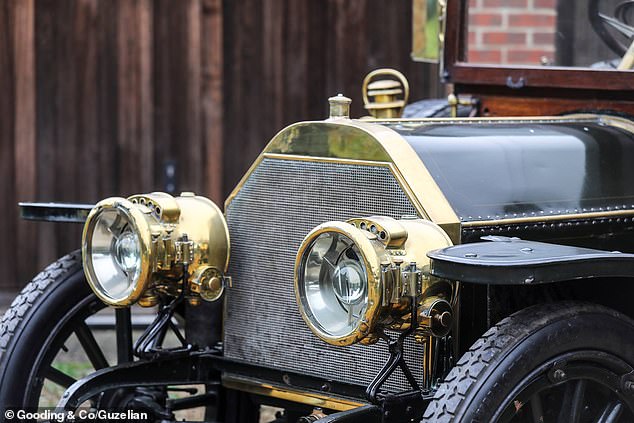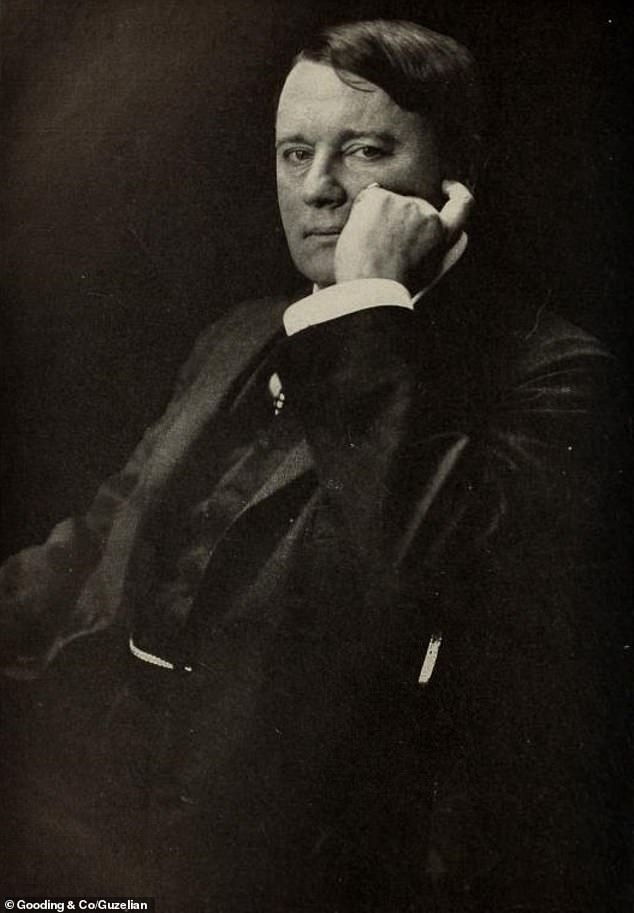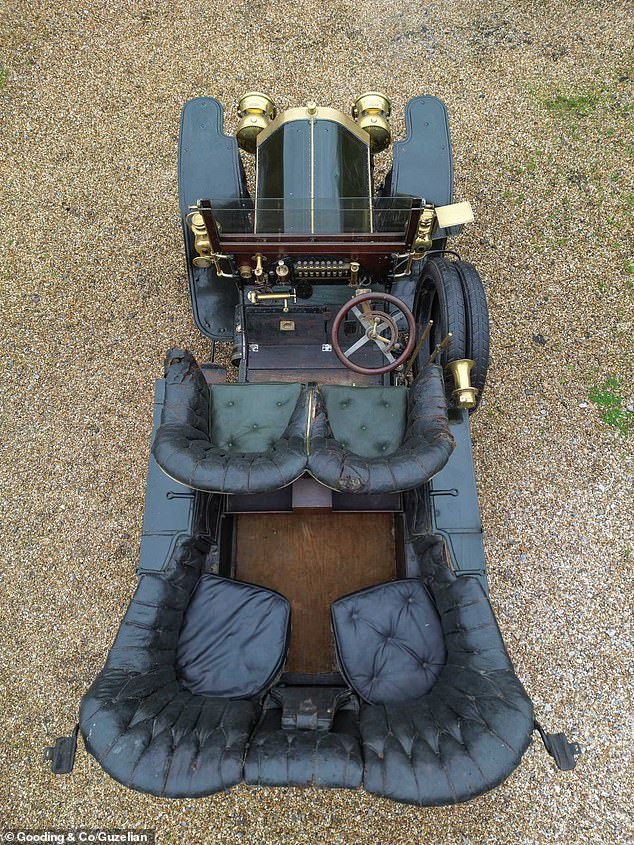Mercedes-Simplex 60 HP bought by Daily Mail founder Alfred Harmsworth is set to become the most expensive antique car ever sold at auction
- Model was the fastest production car in the world at the beginning of the 20th century
It is one of only five known surviving original examples of the world’s first supercar.
With a speed of 130 km/h, the Mercedes-Simplex 60 HP was the fastest production car in the world at the beginning of the 20th century and also triumphed in races.
Now it, built in 1903 for Daily Mail founder Alfred Harmsworth, is about to break a new record: the most expensive antique car ever sold at auction.
The guide price is ‘over $10 million’ (over £7.9 million) and experts estimate it could fetch £8 million. The record for a car from before the 1930s is currently held by a 1924 Hispano-Suiza H6C ‘Tulipwood’ Torpedo, which sold for $9,245,000 (over £7.3 million) in 2022.
The 60 hp will be offered at the Amelia Island Auctions of classic car specialist Gooding and Company in Florida on February 29 and March 1. The sale is being led by British auctioneer and TV personality Charlie Ross, who described the car as ‘magnificent’ and ‘truly historic’.
With a speed of 130 km/h, the Mercedes-Simplex 60 HP was the fastest production car in the world at the beginning of the 20th century and also triumphed in races

The car’s target price is ‘over $10 million’ (over £7.9 million) and experts estimate it could fetch £8 million.

The vehicle was built in 1903 for Daily Mail founder Alfred Harmsworth
The auction house’s president, David Gooding, said it is “one of the most important early cars ever brought to market.”
Alfred Harmsworth, who became the first Viscount Northcliffe, and his brother Harold, who became the first Viscount Rothermere, launched The Daily Mail in 1896.
Alfred was not only a pioneer in popular journalism, but also a pioneer in the field of automobiles. In 1900 he supported the Royal Automobile Club’s 1,000 Miles Trial, prompting RAC secretary Claude Johnson to write: ‘He immediately placed his purse at the disposal of the club and gave the scheme the greatest possible support in his papers at a time where other magazines did. mocking the car as an obnoxious and unnecessary plaything of a pair of cranks.”
Alfred also developed a car collection at his home in Surrey and was one of the first to order an HP 60. It’s unknown how much he paid for it, but the auction house estimates it probably cost about $10,000 at $1,903 prices.
About 102 Mercedes-Simplex 60 HPs were built in Germany between 1902 and 1905. The auctioneers say that while most racing cars of the era were “purpose-built monsters” that had virtually nothing to do with production cars sold to the public, the HP 60 could. are transformed into a competitive racing machine by removing the rear seats and fenders and installing a lightweight two-seat body.
In 1903, Alfred’s car, driven by early motorcycle racers, set the fastest times at Nice Speed Week in France and at Ballybannon Hill Climb in Northern Ireland.

A top view of the car. The 60 hp will be offered at the Amelia Island Auctions of classic car specialist Gooding and Company in Florida on February 29 and March 1.
Shortly afterwards it was fitted with the elaborate ‘Roi des Belges’ (‘King of the Belgians’) bodywork, as seen in our photos – a body style with rear bulges containing two seats, like bucket armchairs, which was used on luxury motor vehicles in the early 1900s.
The car’s registration number – A 740 – is one of the earliest issued by the London City Council, which began issuing ‘A 1’ registrations in 1903.
In the years leading up to the First World War, Alfred used the car regularly, demonstrating its incredible performance to friends and touring it around the UK and the Continent. He affectionately called it the ‘Old Sixties’.
On his death at the age of 57 in August 1922, the Mercedes was left to his 12-year-old son, Alfred John Francis Alexander Harmsworth.
It was later restored and displayed for over sixty years at the Beaulieu Motor Museum in Hampshire. It also took part in the London-to-Brighton Veteran Car Run several times.
According to the auctioneers, the car no longer runs as it was decommissioned in the late 1960s.
